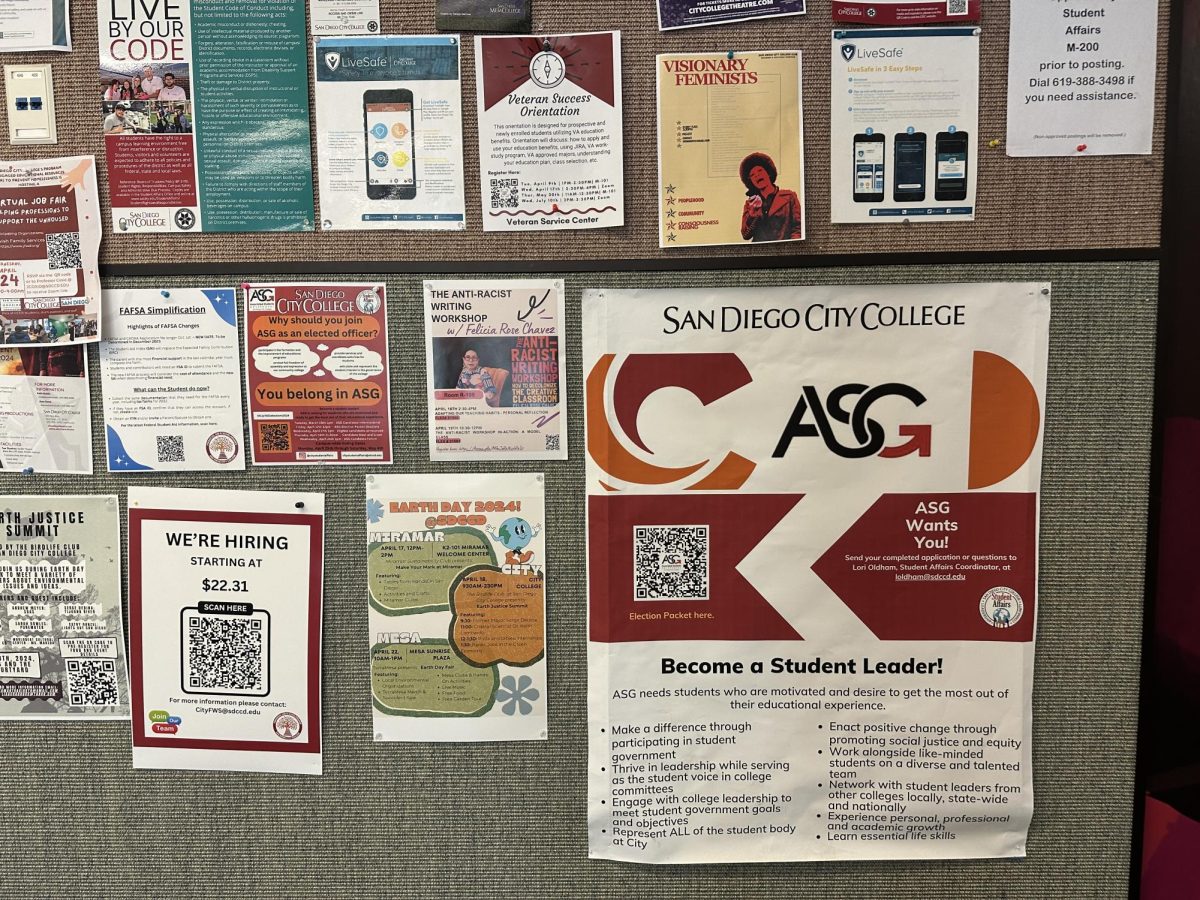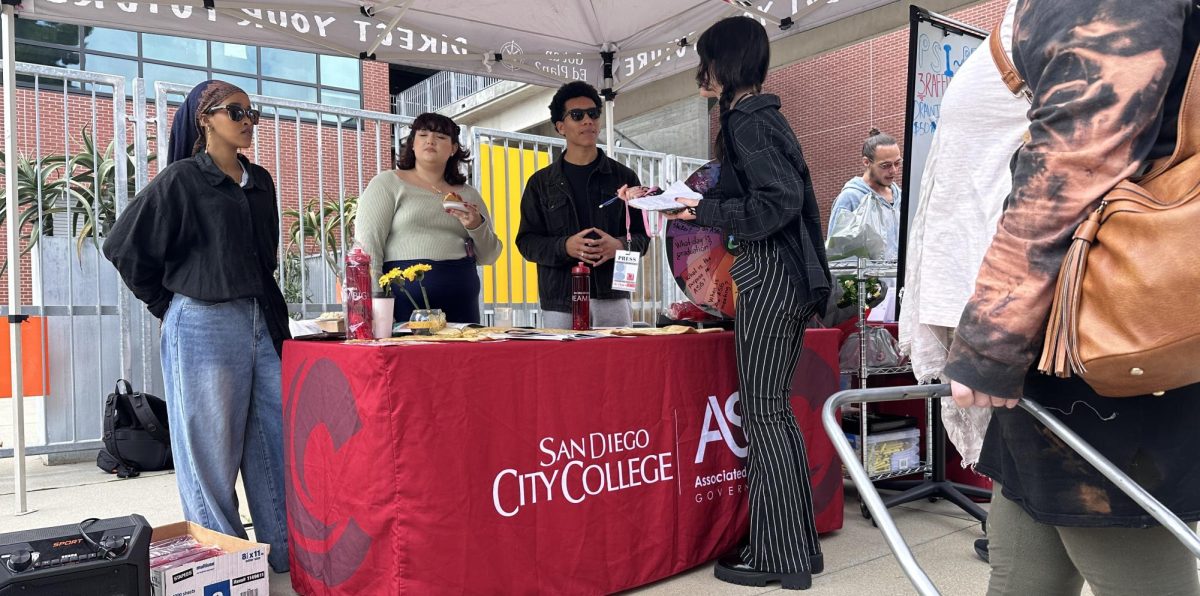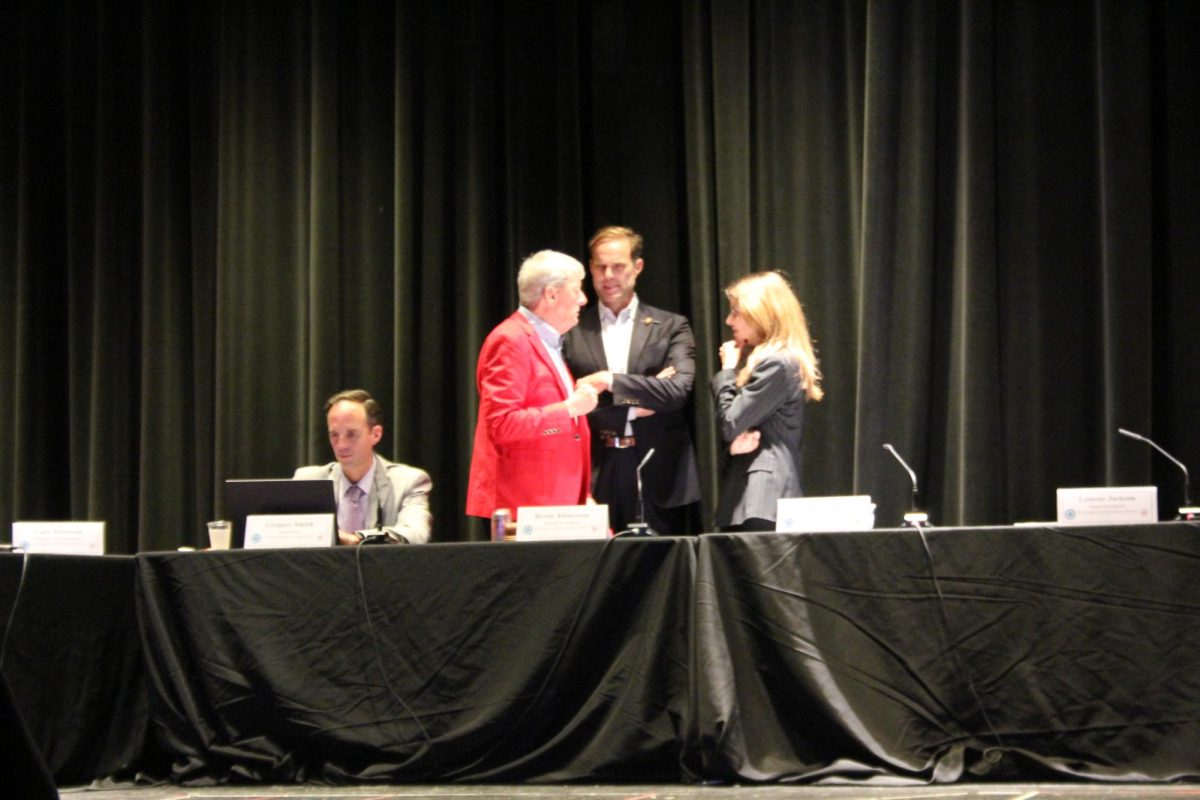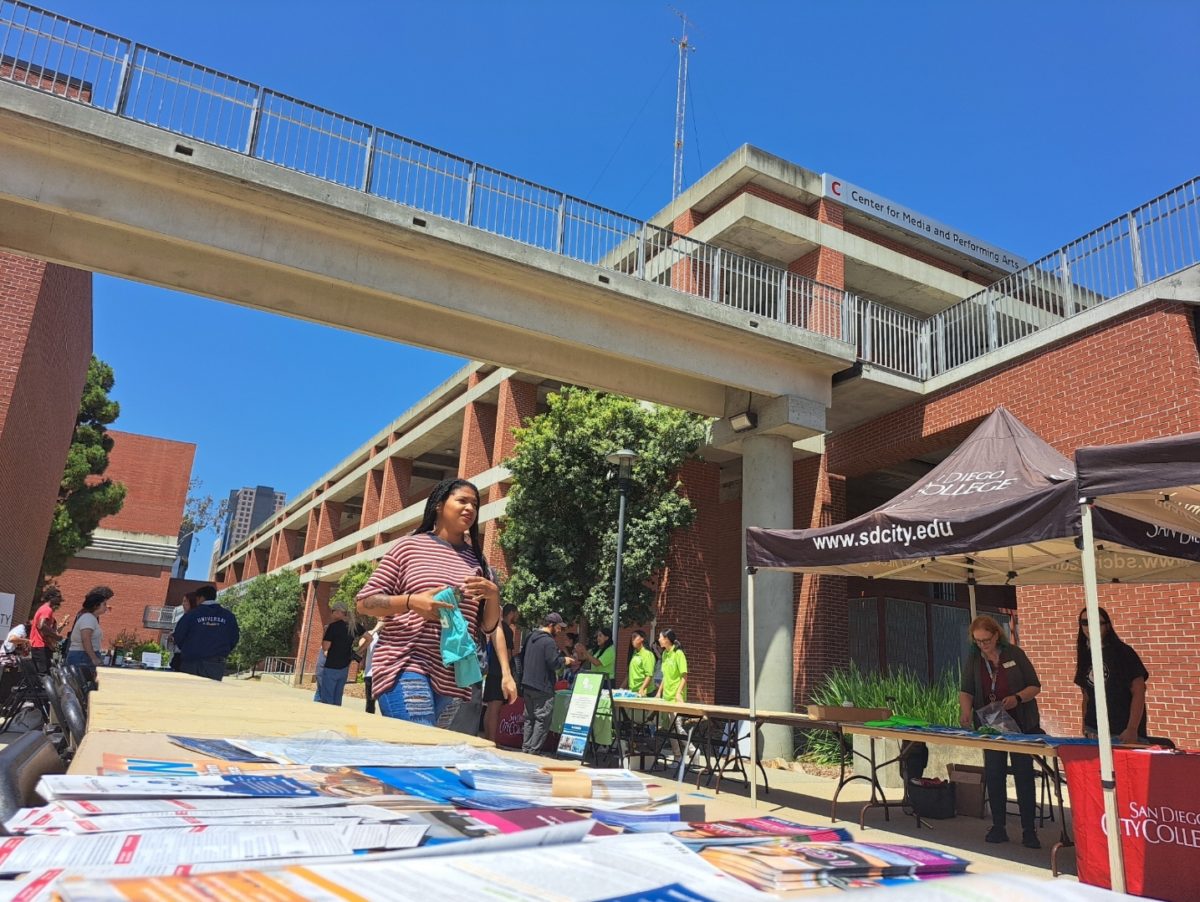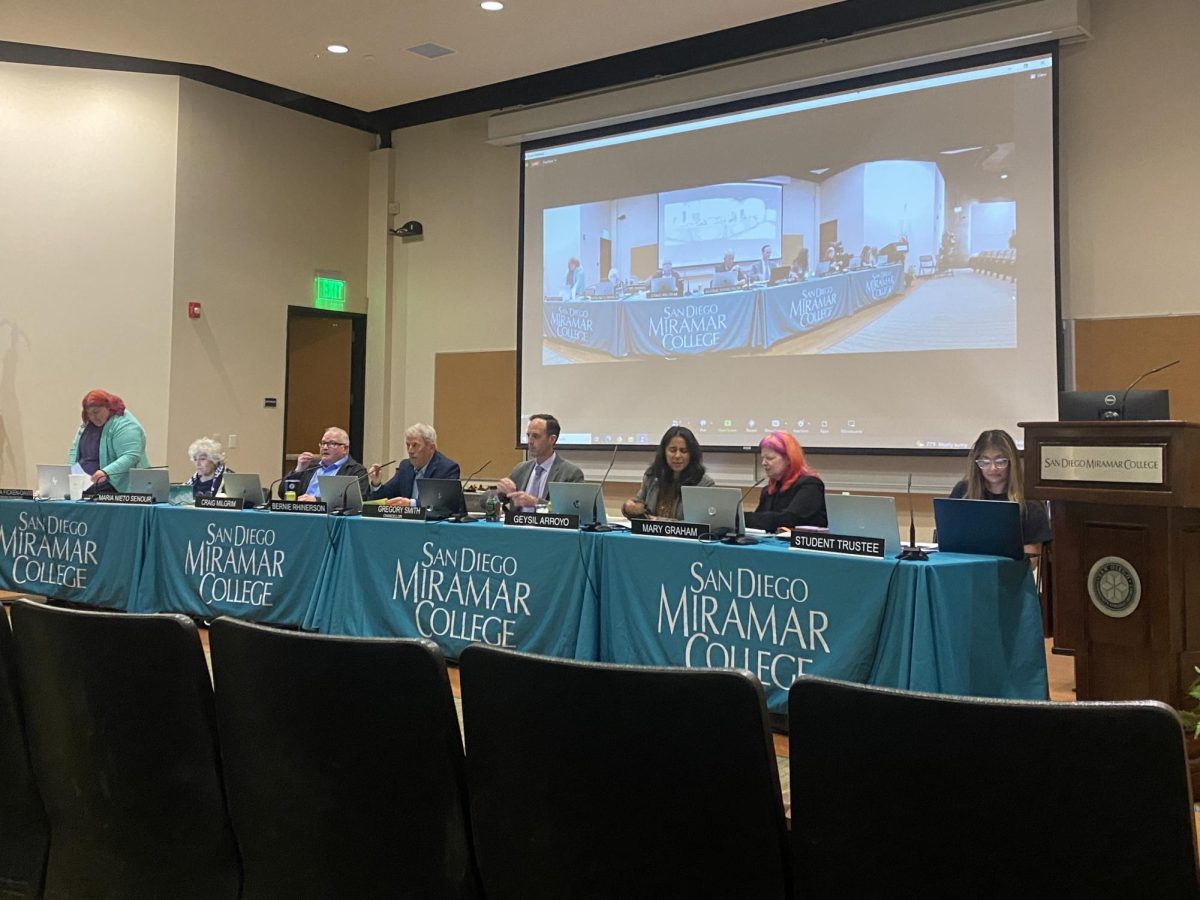Note from the editor: This is the second in a series of three stories about the gap in wages and facilities access between adjunct and full-time instructors. To view the first installment see https://www.sdcitytimes.com/?p=4003340
San Diego City College adjunct instructors celebrated Campus Equity Week in October by waging a letter campaign asking for equal pay for equal work.
Adjunct instructor Arnie Schoenberg said he believes there are other challenges adjuncts face. He perceives it starts at the top in that education has adopted a corporate model. Schoenberg referred it to as “mechanization of education” and made “kerchunk” machine sounds to illustrate his point.
Schoenberg expressed disappointment in the American Federation of Teachers (AFT) union that it has not accomplished its legislative and political goals.
“I’m a little bit pessimistic,” he said. “The union is sort of trying to catch up to what the adjuncts want. … I hear some rhetoric, I just haven’t seen the results, so I guess rhetoric’s better than nothing.”
Ian Duckles, an adjunct instructor and AFT member, is actively involved with the equity movement.
“Our primary way to resolve this issue is to lobby Sacramento for more money for adjuncts. This was the focus for Campus Equity Week, and we plan to continue these lobbying efforts into next year. This issue of equity pay is a problem that is a good 40 years in the making, so it will take some time to correct these inequities,” Duckies said in an email response.
Duckles explained that the union has a complicated Resource Allocation Formula for the San Diego Community College District (SDCCD) as well as Grossmont-Cuyamaca Community College District (GCCCD) that apportions money to them.
“In the SDCCD we have been using this money to (among other things) increase part-timer salaries relative to full-timer salaries,” Duckies added.
Not only is the money temporary, it’s running out.
The money that is needed to close the pay gap between adjunct and full-time instructors has to come from somewhere. Proposition 30 was passed by voters in November 2012. According to www.ballotpedia.org, “Additional state tax revenues of about $6 billion annually from 2012–13 through 2016–17. Smaller amounts of additional revenue would be available in 2011–12, 2017–18, and 2018–19.”
Another issue is that there are more adjuncts than full-time instructors. This was explained by Schoenberg and professor Jim Miller. In times of financial crises, it is cheaper to hire part-time help: benefits don’t have to be paid and the fewer hours worked, the less money is spent on salaries.
Miller teaches English and labor studies at City College. He is a full-time faculty member and he serves on a board for the AFT Guild. Miller was an adjunct instructor during the 1990s.
He explained how Prop. 30 affected City College: “There’s been a good amount of hiring recently, but really all that’s done is after like the 10 years of the big economic downturn and the budget crisis in California, everybody who retired didn’t get replaced. So really all we’ve managed to do is kind of replace people who left. We haven’t really been able to restore and build on that. That’s the situation with a lot of places was Proposition 30 money is it came in and we were able to stop gutting, but we haven’t been able to fully restore, to do everything that we would want to do if we had the kind of funding that we wish we had, that we’d had in the past.”
Miller suggested making Prop. 30 permanent in order to continue funding education. He also said, “One of the things that people are looking at perhaps at 2016 is a commercial property tax reform that would bring in billions of dollars that could be used for educational funding at all levels, K-12 to the UCs, so I think that long term the answer is thinking about ways you can fund the educational infrastructure in the whole state.”
In regard to the letter campaign, Duckles had this to say: “The response has generally been fairly positive. Many of the Academic Senates at these various colleges have endorsed narrowing this pay gap. At the state level, we won’t really know until the Governor releases his budget proposal in January 2015. We have had a meeting with the Chancellor’s office and we have meetings scheduled with the Department of Finance. The Chancellor’s office was very receptive to the proposal. We will see what the Department of Finance thinks.”

